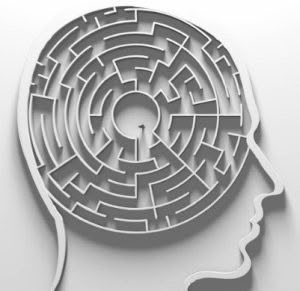Break Free of Phobias
Phobias and fears can have considerable influence in our lives, which can have emotional, physical, and mental effects on our well-being. If you’ve ever experienced phobias or fears, you’re not alone – millions of people around the world have one or more of these.
Some fears actually have a purpose – they’re like our brain’s way of keeping us safe. Just like when we look both ways before crossing the street to avoid danger, our fears can guide us to make smart choices. E.g., being cautious, or feeling a bit scared of walking too near a cliff’s edge is totally okay because it helps us avoid falling.
The line between caution and phobia can sometimes be a bit blurry, though. Think of caution as your friendly neighbourhood guardian, watching out for you. It’s like your inner alarm saying, “Hey, be careful here.” But when that alarm gets a bit too loud and starts blaring even when there’s no real danger, that’s when it starts to cross into phobia territory. E.g., being extra careful around a swimming pool is wise, but refusing to go near any water at all, might be a sign of a phobia.
We hope you’ll find this article includes some valuable insights and effective strategies that can serve as guiding lights through this intricate terrain, and out the other side.
The Emotionally Charged Journey
Emotions possess an intricate depth, and when it comes to phobias, they have the potential to sweep us along a rollercoaster of feelings. Imagine this: you find yourself face-to-face with your biggest fear, and suddenly, a tide of anxiety engulfs you. This sensation is far from a mere abstract concept; it transcends the boundaries of your thoughts and extends its grasp into the physical realm. Your heartbeat accelerates, your palms become moist with perspiration, and each breath comes in hurried gasps. The assault of these bodily reactions serves as a testament to the profound impact that phobias can exert.
Consider the myriad phobias that people grapple with—fear of flying, heights, spiders, and even the act of public speaking. In these instances, the emotions stirred are not fleeting or inconsequential; they are all-encompassing, consuming our thoughts, actions, and well-being. The apprehension that accompanies stepping onto an airplane or gazing down from a tall building can be overwhelming, seeping into every corner of our consciousness. Spiders, often minuscule in stature, can evoke an outsized reaction of dread that echoes through our senses. Even the prospect of addressing an audience can stir emotions so intense that they cast a shadow over our mental landscape. In these moments, the line between emotional and physical experiences blurs, underscoring the profound interplay between our thoughts and our bodies when confronted with the might of phobias.
A client I had several years ago, whose husband had to drive her to the first session. Because of an accident, she developed a phobia of driving, which stopped her driving her car. She was petrified in case she was involved in another accident. Within one hypnotherapy session, she was happily driving normally. (see below for the result of just several more sessions)
The Physical Toll
The mind-body connection is a powerful thing. When fear takes root, it can manifest physically. As fear establishes its presence within us, its impact transcends the boundaries of thought, cascading into the very fabric of our physical being. The advent of fear initiates a sequence of events that materialize in tangible ways.
The surge of stress hormones, such as cortisol and adrenaline, courses through our veins like a rushing current, orchestrating a series of physiological changes. The heart, a loyal sentinel of our emotions, responds by quickening its rhythm, pumping blood with heightened intensity. Alongside this, blood pressure experiences an upsurge, as if in alignment with the heightened alertness brought about by fear.
Muscles brace themselves, tensing in anticipation of a threat that might never manifest. The tension, albeit a defence mechanism, can bring discomfort or even pain, and nervous anxiety. A throbbing headache might emerge,  or being unable get to sleep or sleep well. All are automatic body reactions of our mental turmoil.
or being unable get to sleep or sleep well. All are automatic body reactions of our mental turmoil.
It’s like a domino effect, where emotional turmoil triggers a cascade of physical responses. If you’ve ever been in the grip of a phobia, you’ll understand what this means. And you’ll do almost anything to stop it happening.
The Mental Maze
Phobias can create mental barriers that limit our experiences. These fears have the power to build walls in our minds, limiting what we think we can do. Avoiding situations that trigger fear might feel like a solution, but it actually reinforces the phobia. Over time, this can lead to a shrinking comfort zone, hindering personal growth and opportunities.
When we try to escape situations that make us scared, it might seem like a smart move, like hiding from the thing that scares us. But here’s the twist: doing this actually makes the fear even stronger. Imagine feeding a plant you don’t like – it grows bigger! Similarly, avoiding what scares us makes our fears grow bigger too.
 And over time our safe space gets smaller and smaller. This means we miss out on doing things, adventures, new things to learn, and opportunities to become even more amazing. It’s like saying no to a yummy meal you’ve never tried – you’re missing out on the fun flavours of life.
And over time our safe space gets smaller and smaller. This means we miss out on doing things, adventures, new things to learn, and opportunities to become even more amazing. It’s like saying no to a yummy meal you’ve never tried – you’re missing out on the fun flavours of life.
There’s a way out of this mental maze! By taking small steps, facing our fears little by little, we start to break down those mental walls. It’s like having a special key that unlocks the treasure chest of experiences. As we do this, our comfort zone grows, and suddenly, we’re free to grab hold of opportunities, learn new things, and become the brave explorers of our own lives. Remember, every step you take to challenge your fears is a step toward personal growth and exciting adventures!
BTW… the client I mentioned earlier, actually came initially for “anxiety”. Within a few sessions she had not only rid herself of that, but also had conquered three different phobias, one of which was fear of flying.
Tips to Tackle Phobias
1. Knowledge is Power: Imagine you have a puzzle in front of you. To solve it, you need to understand all its pieces first. Just like that, knowing more about your fear can give you the upper hand. Let’s say your fear is like a spider. Learning about spiders—how they live, why they might seem scary—can make you realize they’re not as fearsome as they seem. Knowledge helps you shine a light on the dark corners of your fear.
 2. Breathing and Grounding Techniques: Think of this like having a magic calming potion in your pocket. When fear shows up, take deep breaths like you’re smelling the yummiest cookies. As you inhale, count to four, and as you exhale, count to four again. This calms your mind and stops anxiety from going haywire. Also, feel your feet on the ground, just like a tree’s roots. This simple trick grounds you, making you feel sturdy and strong, even when your fears try to shake you.
2. Breathing and Grounding Techniques: Think of this like having a magic calming potion in your pocket. When fear shows up, take deep breaths like you’re smelling the yummiest cookies. As you inhale, count to four, and as you exhale, count to four again. This calms your mind and stops anxiety from going haywire. Also, feel your feet on the ground, just like a tree’s roots. This simple trick grounds you, making you feel sturdy and strong, even when your fears try to shake you.
3. Progressive Exposure: Imagine you’re learning to ride a bike. You wouldn’t start with a crazy hill, right? Facing your fear is similar. Start small, like looking at pictures of what you’re scared of. Then, maybe watch a video. Gradually, take steps to be around what you fear—like being in the same room as a spider in a glass jar. Over time, you’ll notice the fear starts to lose its grip. It’s like taming a wild beast little by little.
4. Positive Visualization: Think of your mind as a movie theatre. Play a film where you’re the superhero, facing your fear with confidence. Picture yourself soaring through the sky in an airplane, standing tall on a tall building, or speaking in front of a cheering crowd. Your brain doesn’t know the difference between real and imagined, so it helps you feel brave even before you do it for real. Just like rehearsing for a play makes you feel like a star on opening night!
Remember, these tips are like tools in your toolbox. Use them one by one, mix and match, and know that with each step you take, you’re getting closer to conquering those fears and unlocking a world of exciting possibilities!
5. Professional Help ASAP: Think about how long the phobia has been affecting you? What have you not allowed yourself to do because of it? And how long will you allow it to restrict you?
Seek support from a therapist who has experience of dealing with phobias and fears.
Hypnotherapy: Unleashing Your Potential
At Alpha, we specialize in using hypnotherapy to rewire your thought patterns. By helping you access your subconscious mind, you can identify the roots of the phobia and “rewrite” your responses. Think of it as pressing the “reset” button on your fears. Our friendly, supportive approach ensures you’re not alone on this journey.
According to the National Library of Medicine [HLH]: that hypnotherapy has shown promising results in addressing anxiety around dental phobias. Also HLH: Fear of hospitals. Research reported by Taylor & France [^2] “tremendous volume of research provides compelling evidence that hypnosis is an effective treatment for anxiety. These are just a few examples of hypnosis use for anxiety and phobias. There are many more.
Being cautious is a bit like having a superhero sidekick – you want them to help you when you really need it, but you don’t want them to take over your life. So, a sprinkle of caution keeps you safe, while too much can hold you back from experiencing all the amazing things life has to offer.
Let’s embrace this journey together. Overcoming phobias is not an overnight process, but with determination and a sprinkle of hypnotherapy, you can regain control of your life. Remember, you’re stronger than your fears. Alpha is here to guide you every step of the way.
